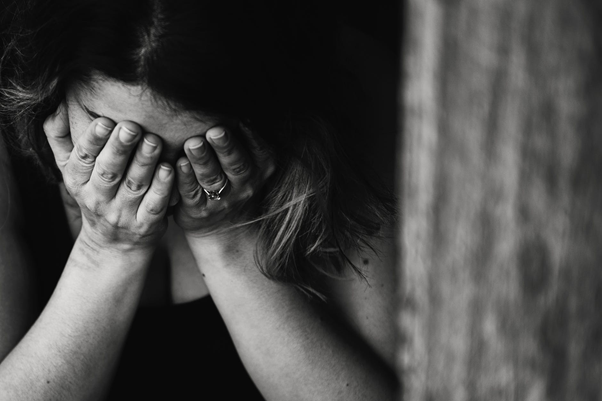How to Overcome Complicated Grief and PTSD: Understanding These Conditions and the Treatment Methods
Complicated grief and post-traumatic stress disorder (PTSD) are both mental conditions that have quite similar effects on a sufferer’s day-to-day life. Because of this, many people confuse these two disorders, causing them to choose inappropriate treatment methods.
In this article, we will point out the differences between the two and share some methods on how to overcome complicated grief and PTSD.
Contents [hide]
What Is Complicated Grief
Complicated grief, also known as complicated bereavement disorder, is characterized by prolonged and severe pain and loss, which can be triggered by the sudden or violent death of a loved one.
It is normal to mourn when you lose someone. You would experience a major emotional crisis, and these emotions can include denial, sorrow, shock, yearning, anger, and guilt. As time goes by, these emotions would slowly dissipate, and you would accept the bereavement, move on, and start reconnecting with life after loss.
However, for other individuals, these emotions get worse over time, depriving them of the ability to bounce back. This loss makes them unable to cope with current reality and resume the course of their everyday life.
If the grief lasts more than six months without any sign of dwindling down, then you are most likely experiencing “complicated grief”.
What causes complicated grief?
According to Psychology Today, 10% to 20% of those who have experienced the loss of a loved one will undergo a period of complicated grief. Below are several risk factors that act as potential causes of this condition:
- When you experience more than one loss in a short period of time – Witnessing the death of more than one person who has a close connection with you in a short span of time is believed to be the first contributor to developing complicated grief.
- When you are heavily reliant on the person who died – If you experience an anxious or insecure relationship with the person who has passed away, there is a high chance that you will suffer from complex bereavement disorder after their death.
- When you experience the unexpected or shock death of a loved one – Moms to be who suffer from a pregnancy loss are prone to developing this disorder.
- When you are likely a negative person – People who always focus on the problems in life and not on the solutions are at a much higher risk of enduring complicated grief.
- When you have a previous mental condition, like depression – Those who have a history of depression are also prone to developing complicated grief when they lose someone.
- When you are short of support resources – If you only have a very few close relationships, there will be a substantially higher chance for you to develop this condition when any of the people you love is no longer present.
What are the signs that someone is experiencing complicated grief?
Mental health experts have not officially recognized complicated grief as a mental health disorder. Therefore, they have yet to come up with any diagnostic system for its diagnosis and treatment. However, they have pointed out certain symptoms of complex bereavement disorder as follows:
- Inability to come to terms with the fact that the person you love has passed away
- Feeling that your life has no meaning without the deceased person around
- Inability to resist the thought that you would die with your loved one
- Overwhelming memories of the departed person
- Feeling that you can neither trust nor offer empathy to others
- A prolonged, intense period of shock and even emotional death
- Extreme sadness when coming across the reminders of your loved one
- Avoidance of anything that can make you think of the departed person
What Is PTSD
Post-traumatic stress disorder (PTSD), on the other hand, is a mental health condition triggered by frightening, stressful, or shocking events. People that live with this condition may be quick to get angry and find themselves in isolation as well as guilt. Since the traumatic situation can keep recurring in their mind and even their dreams, they might lose the ability to sleep well and concentrate. If the symptoms are not diagnosed and treated soon after appearing, the condition will get more severe and persistent, creating a serious impact on the sufferer’s daily life.
What triggers PTSD?
Any situation that is highly stressful and characterized as traumatic is likely to trigger PTSD. This situation might have been either witnessed or experienced directly. Examples of such situations include:
- Physical, emotional or sexual attack/abuse
- A toxic job that involves frequent exposure to frightening pictures or events
- Serious car crash
- A traumatic situation in the workplace
- Traumatic labor or childbirth
- War and conflict
What are the symptoms of PTSD?
With regard to PTSD symptoms, they can develop right after a person experiences a traumatic event. In some cases, they won’t occur until months or even years later. In general, they can contribute to disruption in the sufferer’s social and work life and make him or her detached from family, friends, and even society.
Experts have identified 4 types of PTSD, namely:
- Invasion of unwanted memories
- Avoidance
- Negative thoughts and mood
- Negative physical or emotional reactions
To bring more insight into these coping mechanisms, let’s dive deeper into the symptoms of each type.
- Invasion of unwanted memories
- Unpleasant memories of the traumatic situation that keep replaying in one’s mind
- Uncontrollable flashbacks of the traumatic event
- Nightmares about the terrifying event
- Severe reactions, both physically and emotionally
- Avoidance
- Shunning all thoughts and conversations about the traumatic situation
- Keeping yourself away from potential reminders of the traumatic event
- Negative thoughts and mood
- Negative thoughts about oneself and other people
- Feelings of no hope for the future
- Struggle to maintain strong relationships
- Detachment from family and friends
- Loss of enjoyment of the activities which were once considered hobbies
- Difficulty in expressing positive emotions, such as joy, love, and hope
- Negative physical or emotional reactions
- Being easily horrified or startled
- Being always on guard against some form of danger
- Self-destructive habits, such as overdrinking or misuse of drugs
- Inability to sleep well
- Inability to concentrate
- Being easily irritated or being aggressive
- Getting haunted by guilt or shame
If you are diagnosed with PTSD, you should seek professional help as soon as possible. Part of the therapy includes knowing how to prevent unwanted memories of trauma and cognitive processing.
How to Overcome Complicated Grief and PTSD
Despite the serious impact of complicated grief and PTSD on a sufferer’s every-day life, the good news is that you can fully recover! Below are some recommendations on how to overcome complicated grief and PTSD successfully.
- Accept all your emotions. In fact, any attempt to ignore or avoid your pain just makes you feel worse in the long term. Therefore, embracing all these emotions is the first step to recover in the most effective way.
- Consult a mental health expert. Asking for a consultation from a mental health professional is definitely the surest way to see improvements. The professional will tell you exactly what you are suffering from (whether it is complicated grief or PTSD) and suggest the right treatment methods.
- Ask for assistance from your family and friends. In addition to professional support, you can also lean on your family and friends, who care a lot about you and always show their willingness to provide you some comfort.
You can tell them exactly what kind of support you need. For example, do you need help with funeral planning and organization? Or, do you need someone you can confide in and with whom you can share your inner feelings?
However, in case you have no close family members or friends, you can join a support group. This is where you can share your experiences and emotions with others who are facing the same problem. You can also check out services and resources, such as Guards Down, which are dedicated to helping PTSD patients recover holistically.
- Look for healthy therapies. You can opt for yoga and meditation, instead of resorting to self-destructive actions, such as smoking, binge drinking, and substance abuse.
How Psychotherapy Helps with the Recovery Process
Psychotherapy is a popular type of treatment for complicated grief. It can be conducted with a single person or within a group. Its treatment techniques also share similarities with those utilized for PTSD and depression. So, how to get out of grief and PTSD through psychotherapy?
Here are the proper tools you gain during psychotherapy:
- Proper knowledge of complicated grief and ways of treatment
- A better understanding of the symptoms and reactions of a person with complicated grief
- Information on how to cope with the loss and how to reset your life goals
- Tips on how to strengthen your coping skills
- Advice on how to lower the intensity of blame and feelings of guilt
- Chance to create imagined conversations with the person who has passed away, then share the story of their death, which all help to alleviate your grief experience
In Conclusion
Hopefully, the insights provided have led you through the definitions of complicated grief and PTSD, their causes and symptoms, as well as how to cope with and overcome complicated grief and PTSD. Although the journey is not easy, small steps that are taken toward self-care, support and treatment are the best investment you can make for your future. Start today! For more interesting and useful information on health and fitness, please browse this page.





Pingback: "Helping Little Hearts Heal: Navigating Grief with Kids"